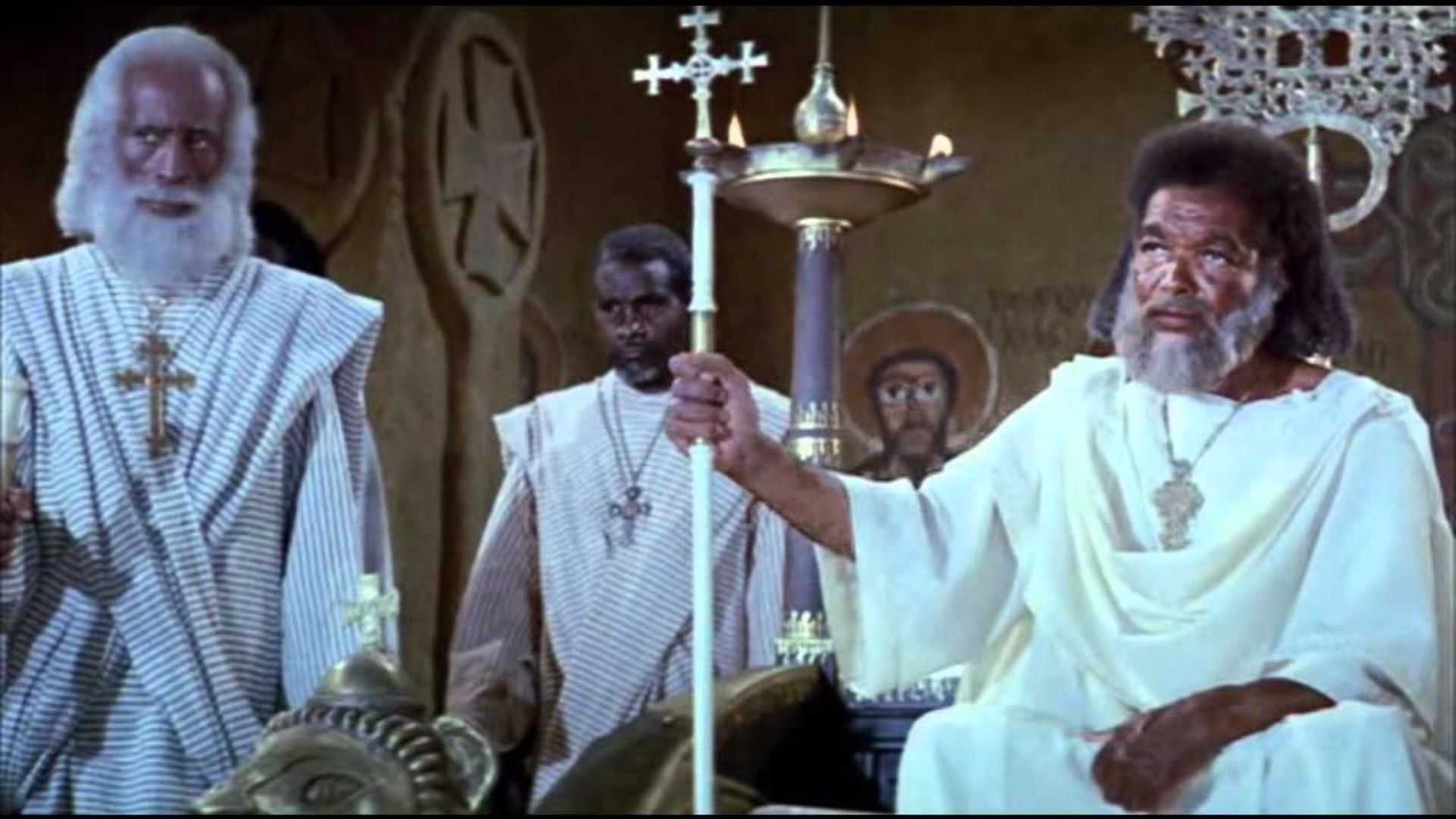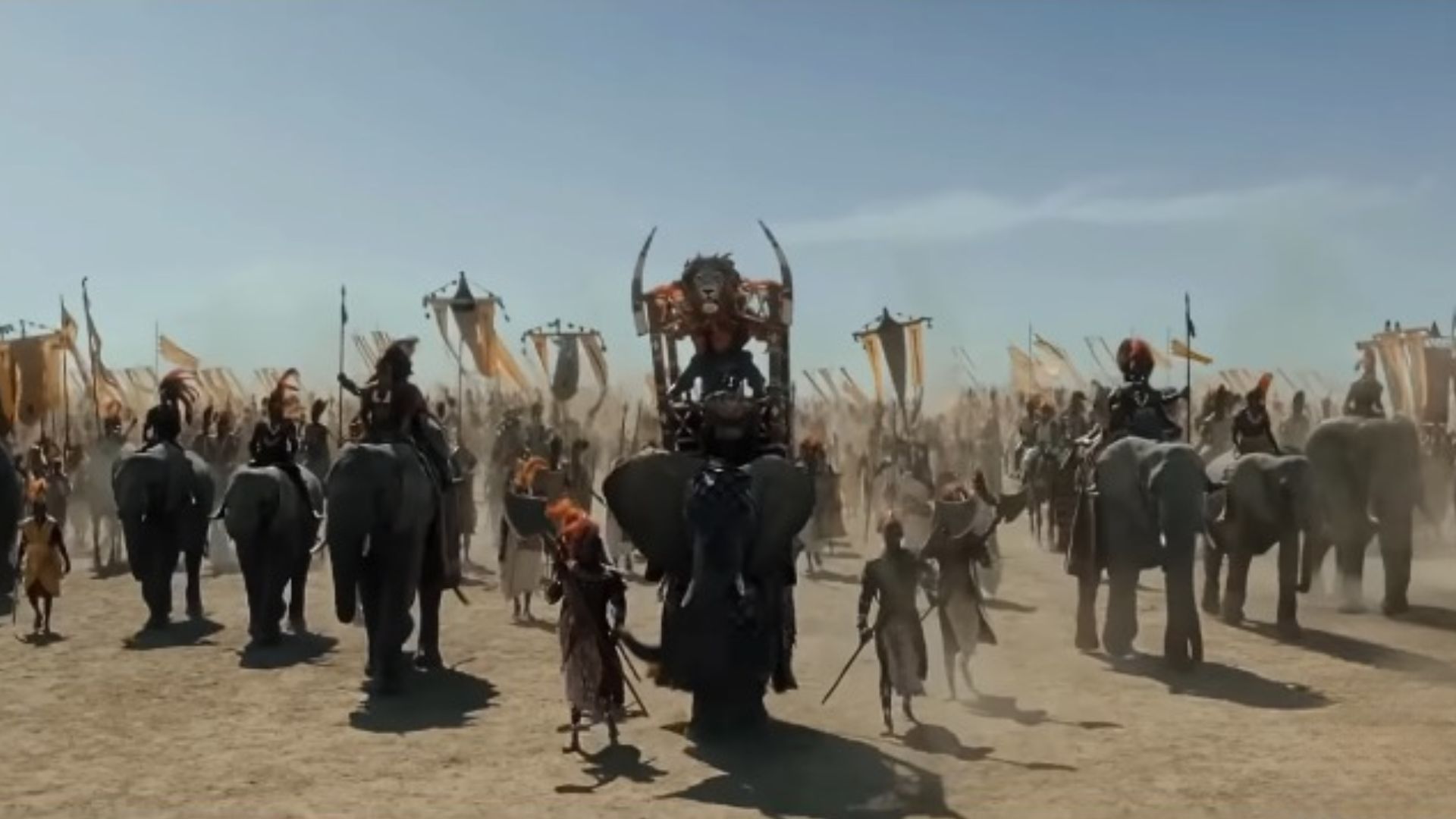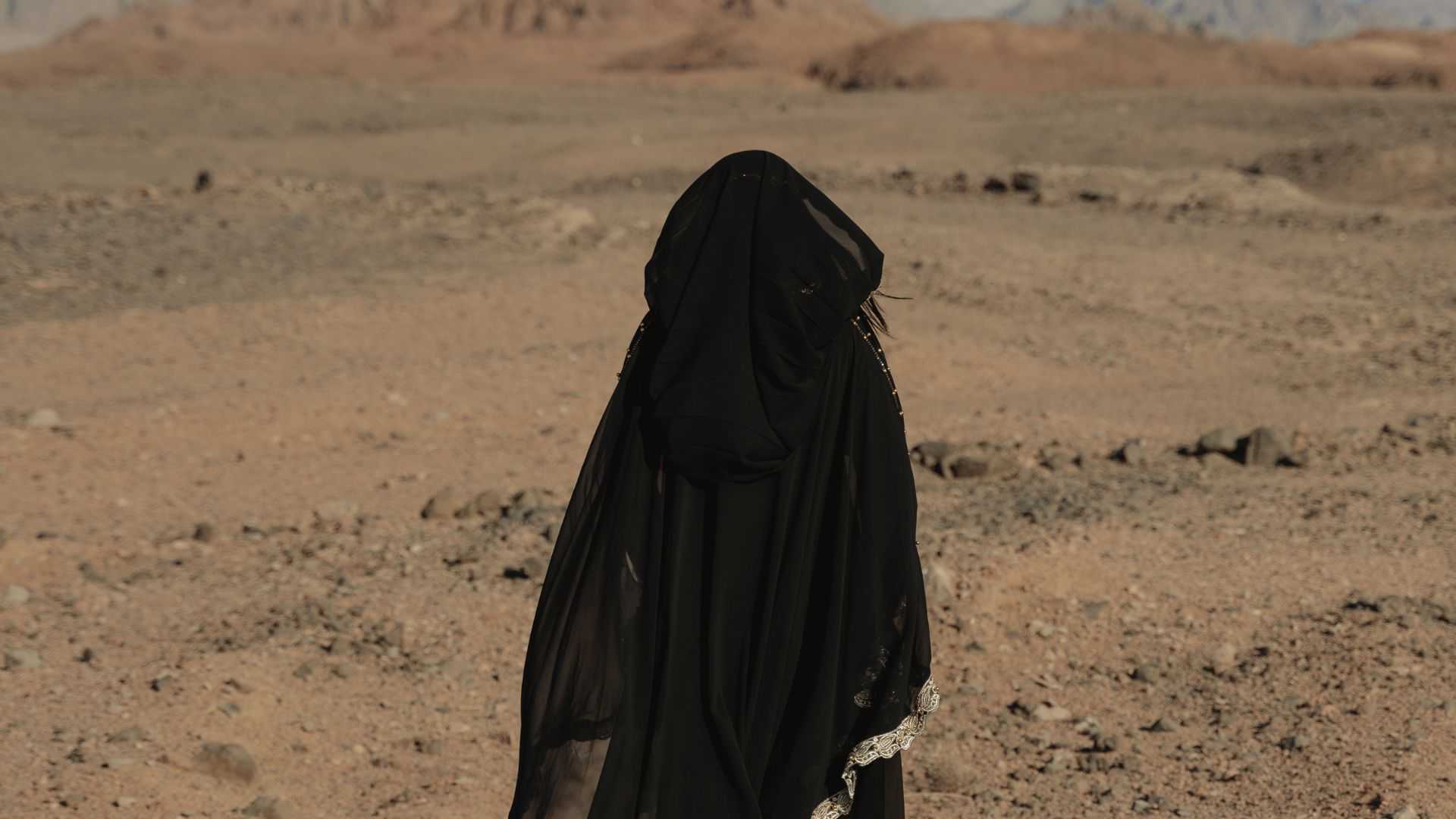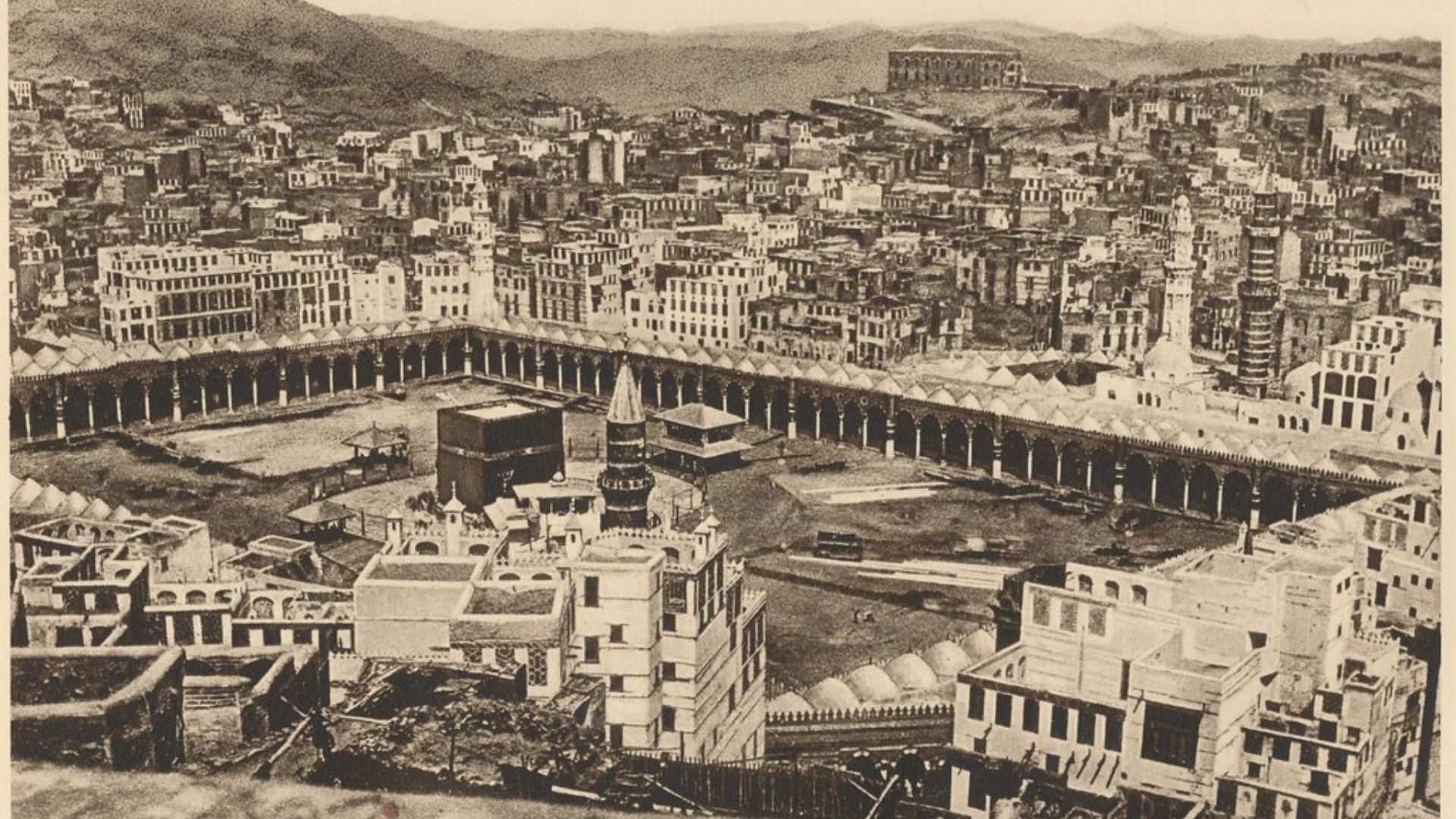Prior to the Qur’an, every divine book detailed the honorable behavior of the Prophet Muhammad, and many kings had the fortitude to adopt Islam. Najashi, the emperor of Abyssinia, was one such individual who adopted Islam in spite of opposition. He had never met the Prophet or heard his voice, but he had learned of his arrival from earlier sacred texts, and when he recognized him from conversations with the Sahabah, he did not hesitate to accept Islam as the real message of Allah Almighty.
When Makkans learned of the early converts’ migration, they were angry and made the decision not to spare them. They sent their delegation, consisting of two people, to Abyssinia. Amr bin Al’A’as and Abdullah ibn Abi Rabiya were dispatched to capture and return the Muslims in Abyssinia. Amr bin al-A’as was a brilliant speaker and astute analyzer who was not yet a Muslim.
They were delivered to the ruler of Abyssinia along with the Makkan leather goods as gifts in order to convince him to let them bring back the recently converted Muslims. When they both arrived in Abyssinia, they scheduled a meeting with Najashi, the monarch. They gave the ruler their presents. They honored themselves by sitting on either side of Najashi.
They declared the early Muslims to be fugitive slaves who had escaped Makkah after committing crimes when the ruler inquired as to their purpose for traveling to Abyssinia. When Najashi learned of this, he gave the order to find those individuals, who were then brought before the court. The two Makkah leaders sitting on either side of Najashi startled the migrants.
A Learning for Muslims living in Non-Muslim Countries
The Muslims were alarmed when they saw the situation in the Najashi court.
One of the migrants, Jafar bin abi Talib (May Allah be pleased with him), calmed them and assumed responsibility for making their case to the King. Jafar greeted the ruler with “Assalamualaikum,” and the two Makkan delegates seized the opportunity to strike first.
“This individual is defying the custom of bowing to you in your court”, they claimed. It took a great deal of fortitude not to bow down to the monarch because doing so is an act of shirk. Jafar (may Allah be pleased with him) was questioned by Najashi as to why he did not bow to him.
“We Muslims do not bow to anyone other than Allah”, he retorted.
The Makkan couple persisted in agitating the ruler. He inquired as to the rationale behind Jafar bin Abi Talib’s (May Allah be pleased with him) refusal to make a bow to the monarch. Without any hesitation, he responded, “O King! We were engulfed in the depths of ignorance and barbarism; we worshipped idols, lived in ignorance and immorality, ate the flesh of dead animals, committed all manner of abominations and shameful acts, severed ties with family, ignored every human emotion, and neglected social norms of hospitality and neighborhood. We only knew the law of the powerful.”
“Then Allah raised among us a man, of whose birth, truthfulness, honesty, and purity we were all aware. He drew our attention to the Oneness of Allah and instructed us not to associate anything with Him.”
“He forbid us from worshipping idols and commanded us to tell the truth, keep our promises, show mercy, and respect the rights of our neighbors and family members. He forbids us from disparaging pure ladies or taking orphans’ possessions. He gave us instructions on how to avoid vices and evil, as well as how to pray, give alms, and keep fast.”
“We have trusted him, obeyed what He has permitted and refrained from what He has forbidden, and accepted his teachings and commands to worship Allah and not to associate anything with Him. Because of this, our people turned against us and persecuted us in an effort to convince us to stop worshipping Allah and start turning to the worship of idols and other abominations.”
“We have been tormented and harmed by them, and as we could find no safety among them, we have fled to your country in the hopes that you will spare us from their tyranny.”
The inspiring speech above demonstrates that if Muslims uphold Islamic principles, Allah will support them no matter what. When the Makkah delegation’s two members noticed that the monarch was becoming moved by Muslims’ rhetoric, they sprang into action and begged the ruler not to be captivated by it. Be aware that certain views are negative in nature toward Jesus and his mother Mary. Because of the sensitivity of Christian beliefs regarding the deity of Jesus and his mother, the Makkan officials believed it was appropriate to confront the Muslims with these accusations because Najashi was a Christian. Jafar (May Allah be pleased with him) was questioned by Najashi about his opinion.
“Do you have with you something of what your Prophet has brought from God?” he questioned Jafar. ” Read it to me please.”
Jesus, according to Jafar, was a messenger sent by Allah through Maryam, a virgin. Then he recited for him verses 16 to 32 of Surah Maryam in his deep, melodic voice.
“And make mention of Mary in the Scripture, when she had withdrawn from her people to a chamber looking East, (16)
And had chosen seclusion from them. Then We sent unto her Our Spirit and it assumed for her the likeness of a perfect man. (17)
She said: I seek refuge in the Beneficent One from thee, if thou art God-fearing. (The angel) said: I am only a messenger of your Lord, that I may bestow on you a faultless son. (19)
She said: How can I have a son when no mortal has touched me, neither have I been unchaste? (20)
He said: So (it will be). Thy Lord said: It is easy for Me. And (it will be) that We may make of him a Revelation for mankind and a mercy from Us, and it is a thing ordained. (21)
And she conceived him, and she withdrew with him to a far place. (22)
And the pangs of childbirth drove her unto the trunk of the palm-tree. She said: Oh, would that I had died before this and had become a thing of naught, forgotten! (23)
Then (one) cried unto her from below her, saying: Grieve not! Your Lord hath placed a rivulet beneath you, (24)
And shake the trunk of the palm-tree toward thee, you will cause ripe dates to fall upon you. (25)
So eat and drink and be consoled. And if you meet any man, say: I have vowed a fast unto the Beneficent, and may not speak this day to any human. (26)
Then she brought him to her own folk, carrying him. They said: O Mary! You have come with an amazing thing. (27)
O sister of Aaron! Your father was not a wicked man nor was your mother a harlot. (28)
Then she pointed to him. They said: How can we talk to one who is in the cradle, a young boy? (29)
He spoke: I am the slave of Allah. He has given me the Scripture and hath appointed me a Prophet, (30)
And has made me blessed wheresoever I may be, and has enjoined upon me prayer and almsgiving so long as I remain alive, (31)
And (has made me) dutiful toward her who bore me, and has not made me arrogant, unblest. Such was Jesus, son of Mary: (this is) a statement of the truth concerning which they doubt. (34)
It befits not (the Majesty of) Allah that He should take unto Himself a son. Glory be to Him! When He decreeth a thing, He saith unto it only: Be! and it is. (35)
And lo! Allah is my Lord and your Lord. So serve Him. That is the right path.”
Surah Mariyam 16-35)
The Quran has provided us with the Islamic account of Jesus’ birth. One day, Maryam noticed a handsome man coming toward her. Jibrael the Archangel was the one who had arrived from Allah. She feared his presence and prayed to Allah for protection. The angel gave her the reassurance that she should not be concerned and explained that he had been sent by Allah to bring her the good news of a son. She questioned aloud how she could have a boy being alone. When Allah decrees a topic, the Angel said, He only needs to say, “Be,” and it occurs (in this case, pregnancy without any intervention of a male).
The moral of the story is that Mary and Jesus were both people, not that Jesus was the son of Allah or that Mary was the bride of God.
While the Muslims sat down out of concern for the outcome of the court decision, the two Makkah leaders were pleased to observe that Jafar was speaking quite counter to conventional Christian beliefs. According to reliable accounts, Najashi cried as she listened to Jafar recite (May Allah be pleased with him). Even the most eminent scholars in his courts broke down in tears. And he instructed him to halt when he got to the line that said, “Such was Jesus, a statement of the truth.”
In his court, Najashi professes his Islam.
In support of Allah’s words, Najashi rose to his feet and uttered the following: “Stop!
“This (the Quran) and what Jesus had brought (the Injeel) are undoubtedly from the same source (Allah), and they completely match what is said in the Torah and the Injeel.” Then he said to his court: “O my people! What more do you require? I declare that he is the Messenger of Allah and that these passages are without error. He is also the same prophet to whom Jesus gave the good news of his coming. I wish I had the opportunity to visit the Prophet and conduct acts of service for him, such as picking up his shoes and giving him water to perform ablution.”
Instead of continuing to rule as king, Najashi preferred to serve the Prophet. Such was the result of an honest and straightforward welcome to Islam.
The defense of the innocent Muslims was now in his hands. As opposed to treating them as mere refugees, Najashi permitted them to stay. ” You’re welcome; Your Prophet is welcome”, he said, turning to face Jafar and his followers. ” I recognize that he is the Apostle to whom Jesus had announced the good news. Live anywhere you want in my nation.” He then glared fiercely at the Makkan delegates and threatened to defend them, saying, “I won’t deliver them to you and I will defend them.”
He then gave his courtier the command to dismiss the delegation and give their presents back. According to legend, Umm Salama (May Allah be pleased with her) was a Muhajir before she subsequently wed the Prophet after her husband passed away. She recalled the event and stated, “It was the Prophet who had permitted us to go to Abyssinia till conditions improved in Makkah.”
As a result, Najashi was the first king to adopt Islam at his court and passed away a few years later as a Muslim.
Read more Islamic Blogs or Follow us on social media for daily Islamic reminders.









